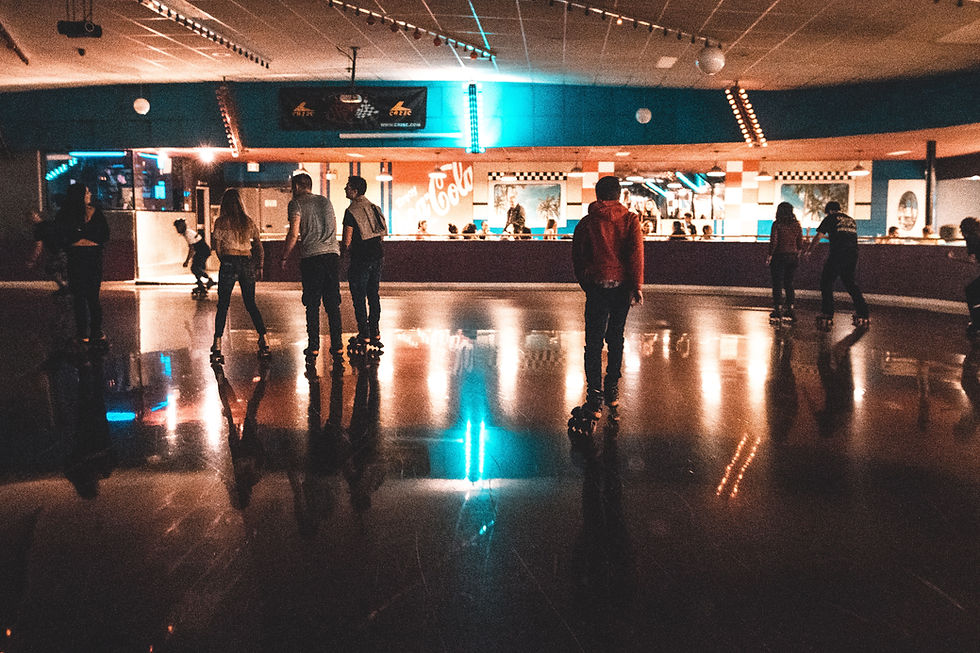What I wish People Knew about Mental Health
- Hannah Martin

- Jan 7, 2025
- 4 min read
Over the Holidays, I made a point in my phone’s notes app every time I thought of a new misconception that surrounded mental health. Negative mental health touches every part of a person's life, and seeing the bias that surrounds this topic is paramount in overcoming it. So, I’m going to share all of the things I wish people knew about mental health.
Mental Health Doesn't ‘look’ One Way
What would you envision if I asked you to think of a person who was depressed? Maybe you’re thinking of a messy room, greasy hair and a black hoodie, hiding in the darkness of their bedroom. And while this stereotype might be true for some, it’s not true for all. When I was at the lowest point of my life, my room was clean; I wore pastel dresses and colorful makeup, and I was constantly smiling. Despite being the polar opposite of this stereotype, I still felt isolated, numb, and alone. A battle with mental health will never look the same for every person, because every person handles their emotions differently. Even if a person seems happy, you never know what they are hiding behind closed doors. So then, how can you tell if a person is struggling? For many, battling mental health can cause fatigue, loss of interest in hobbies and other commitments, anxiety, and more. If you see these kinds of signs in a friend or a family member, reach out and make sure they’re getting the support they need. Overall, signs of decreasing mental health are never black and white, and it’s in the shades of grey where so many fight their battles.
‘You’re Doing it for the Attention’
Oftentimes, the thoughts that enter and stick in the minds of those who struggle aren’t realistic or reasonable. However, the emotions connected to those feelings are very real, and need time to be addressed and overcome. When someone confides in you about how they are feeling, it’s not because they want attention- It’s because they need support. Some even believe that self-harm is done purely for attention; this is also untrue, and a hurtful stereotype. There are many different reasons why a person who is struggling turns to self-harm; the want for control, the want to release emotional pain, the want to feel something after so much numbness, and so many other complex reasons. What helped me overcome the urge to turn to self harm was an app called “I am Sober’, which keeps track of the years, months, weeks, days, and seconds a person has been sober from their addiction. Every time I found myself with the urge to harm myself, I would open the app and remember what I was fighting for, and it would assist in calming me down. I hope It can work for others, too. All in all, the misconception that someone who struggles is ‘doing it for the attention’ is a negative stereotype that discourages open conversation about mental health.
Hygiene and Mental Health
One of the struggles of those who struggle with mental health is hygiene. This is one of the most stigmatized conversations to have, as some consider a person who struggles to shower, brush their hair, or complete tasks relating to their personal care ‘lazy’ or ‘gross’. However, struggling with personal care is an important part in battling mental health, one many who struggle feel uncomfortable talking about, including myself. So, I’ll start the conversation; At my lowest point, I didn’t brush my teeth for almost an entire year. I also cut my hair, so I wouldn’t have to brush it as often. As I recovered, I dyed my hair fun colors and cut it in unique ways to inspire me to take care of it, and set alarms on my phone every day to remind me to brush my teeth and hair. Even today, my teeth are still yellow; but that’s what recovery looks like. Recovery isn’t easy, or pretty, or fast. It’s one day at a time, good days and bad, and some days the only thing one can do is survive.
‘Nothing Even Happened to You’
Many believe that for someone to have bad mental health, or suicidal ideation, there needs to be some kind of catalyst or trauma that ‘causes’ a decline. This isn’t true. There are so many reasons why a person could be struggling, from a student with too much work piling on to a sports player cracking under the pressure of the expectations of their team. No matter how it starts, a decline in someone’s mental health is valid, and their journey to recovery should be met with support, rather than disbelief. Just because a person has good things happening in their life does not mean they can’t feel a certain way, either. Many actors, models, and other public figures have taken their own lives, despite seemingly ‘having it all’.
All in all, these and the many more misconceptions that continue to surround mental health block open, healthy conversations about the topic. Talking about mental health can be scary; the fear of judgement can overwhelm a person and keep them feeling isolated. I hope that my stories can inspire others to speak more openly about their experiences and their own battles. We’re all fighting, and no one deserves to fight alone.
[Author’s Note- Sorry for the break in posts! I’ve been in a bit of a slump myself recently, but I’ll start making more consistent posts now! Happy 2025!!]



Comments